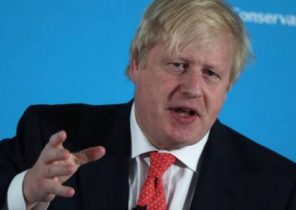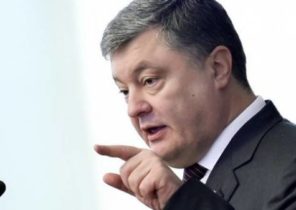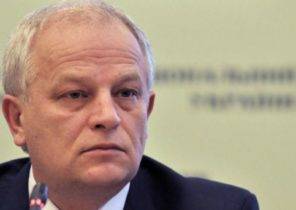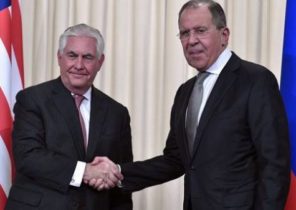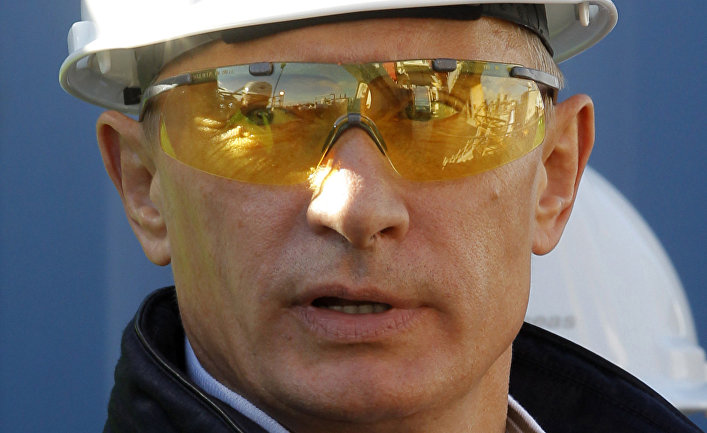
In the first weeks of his presidency, Donald trump was impressed, scared, or insulted, perhaps, of all its foreign partners, except one: the President of Russia Vladimir Putin.
The US representative in the UN security Council Nikki Haley (Haley nilli) on Thursday said economic sanctions against Russia will remain in place as long as Moscow does not return Ukraine’s occupied Peninsula of Crimea. Despite this, Trump and Putin during his first telephone conversation on Saturday a week ago was able to communicate on the crisis in Ukraine, without entering into the discussion.
Previously, trump has even said that he expects “a fantastic relationship” with Putin. The conversation was “very positive” — so this conversation was later described in the White house.
Natural gas faces a conflict of interest
Perhaps a telephone conversation between the two powerful men went so perfectly because the new Secretary of state USA Rex Tillerson (Rex Tillerson) at the time had not yet taken the oath. Otherwise, the former head of the oil and gas Corporation ExxonMobil, probably hinted to his new employer about the conflict of interests between the US and Russia.
We are talking about a dominant position in a growing global market for natural gas. And whether there will be a new President loyal to the purpose which still pursued us foreign policy, namely to liberate Europe from dependence on Russian natural gas supplies.
Moscow is currently trying to strengthen its dominant position as the main supplier of gas for Europeans with the construction of the so-called Nord stream-2. However, this intention is directly contrary to the export interests of the rapidly evolving U.S. natural gas industry.
So no wonder America is tacitly resists the construction of the Russian-German gas pipeline. Officially Russia want to prevent the use of natural gas as a means of exerting political pressure on Eastern European importing countries.
New technologies are changing the rules of the game
Nevertheless, Russia continues to adhere to its plans to build the pipeline, because the state budget is substantially dependent on the export of gas to Western States. The more the question arises, how far will trump in his sympathy for the interests of “friends of Russia”.
The conflict develops on the background of the technological revolution: natural gas as a critical energy resources will soon surpass oil and coal. Increasingly, the gas is liquefied in cooling installations and in the form of “liquefied natural gas” (LNG) is transported in special tankers across the ocean. If until now there were only the global market natural oil, thanks to the “carriers” will now be formed and the global natural gas market.
It is evolving rapidly: “the Volume of trade in liquefied natural gas is growing seven times faster relative to the gas transported through the pipeline,” says the chief economist of the energy concern BP Spencer Dale (Spencer Dale).
The main role played by the United States: thanks to the so-called “hydraulic fracturing” Americans have become the world’s largest producers of shale gas. Energy giants are building in Louisiana and Texas in Corpus Christi, powerful installation for the liquefaction of fossil fuels from the earth.
The LNG revolution is fundamentally changing the rules of the game. Countries and regions, which in the past pipelines are connected with certain suppliers, owning LNG terminals, can now freely decide from whom to buy fuel.
Germany and the EU should take the decision
Poland and Lithuania have reduced their dependence on Russian gas supplies through the construction of appropriate port facilities — and thereby has achieved a certain freedom in politics. Other LNG terminals, e.g. in Rotterdam, in French Dunkerque, in Spain, Portugal and the UK though built but not yet fully exploited.
In the light of new trading opportunities in the energy sector in Germany and the European Union as a whole, face a choice: become part of a new global market of liquefied gas operating by the tanker fleet? Or for a long time to associate themselves with Russia by building a new pipeline — and in that moment, when the Kremlin is pursuing an aggressive foreign policy?
Economic and political motives when making decisions about construction of new pipeline “Nord stream-2” are inextricably linked. It was clear even during the construction of the first pipe of a gas pipeline between Russia and Germany, in the framework of the project “Nord stream”, when the German ex-Chancellor Gerhard Schroeder (Gerhard Schroeder) (SPD) was appointed Chairman of the shareholders Committee of the consortium.
The German government ignores risks
But now the capacity of the Baltic pipeline will be doubled due to the parallel threads of the pipeline. The German government supports the project, initiated by the Russian gas giant Gazprom, apparently guided by the following considerations: the more transport routes are in Western Europe, the better.
But the European sources of natural gas in the North sea and the Netherlands are being rapidly depleted, and predictable manner is sharply increasing dependence of the EU on gas imports. Impossible “to find any fundamental contradiction between the growth of LNG imports and the expansion of the pipeline infrastructure,” announced the German government in response to the request of the faction “Green” in the Bundestag.
Germany’s position in this matter ignores the possible risks and side effects. Last week it tried to explain Andriy Kobolyev, CEO of Ukrainian gas company “Naftogaz”. He was accompanied by President of Ukraine Petro Poroshenko during his trip to Berlin.
Ukraine warns Germany about the consequences
Both warned that, according to them, since 2019 the Kremlin would refuse to use the current route of the pipeline passing through Ukraine, will be ready when the Baltic pipeline “Nord stream-2”. In this case, Ukraine will lose transit fee at the rate of “at least two billion dollars a year,” KOBOLEV said in an interview with Welt am Sonntag.
The project of the Baltic pipeline runs contrary to the interests of Germany, said the head of Naftogaz: “If the transit through Ukraine will die, in fact Germany will be the only entry point of Russian gas for the European Union”. Thus, “Germany may find themselves in the same situation as Ukraine in 2009,” warned males. Then, because of disagreements with Kiev, Moscow will simply shut the gas tap.
The Commission gets out of position, arguing that the European Parliament and many member States of the EU, against the construction of the pipeline. Sweden initially banned the “Gazprom” to use the ports of the Baltic sea for the construction of the pipeline for reasons of national security, but then lifted the ban. Western energy giants such as Shell, Engie and the German company Wintershall and Uniper in Poland has not received permission from antitrust legislation for the creation of a pipeline consortium with Gazprom.
While the US supports Ukraine
The European Union Commissioner for energy issues, Sefcovic Maros (Maros Sefcofic), as a Slovak, well aware of the concern of Eastern European countries seeking to increase its dependence on Russia because of their needs for natural gas, but at the same time earning significant funds from fees for transit of Russian gas. But the interests of Germany in respect of a direct pipeline from Russia, carry weight in Brussels.
While the Commission does not provide a clear position on this issue, the Ukrainians will count on the support of the Americans. Still, the U.S. was a reliable pillar for Eastern Europe. Special envoy of the US state Department for international energy Affairs Amos Hochstein (Hochstein Amos) has clearly warned about “economic collapse” of Ukraine in the occasion of the completion of the second line “Nord stream”.
“The idea is to use LNG to free the country from their dependencies,” explained Hochstein, at that time held his post in the Obama administration, in an interview with the Houston Chronicle: “the United States become the world’s largest exporter of LNG, and Russia is afraid to lose gas monopoly”.
The German foreign Ministry remains silent
Hochstein said that the US had previously intervened in the situation on the European energy market. So, with the assistance of the United States Lithuania opened the LNG port and freed from dependence on the energy giant “Gazprom”. “Before began to receive LNG, Lithuania was able to revise its contract with Gazprom to lower its price by 20-30%.”
Forced Gazprom doubling of the capacity of “Nord stream” from the point of view of economy it is impossible to justify spending up to ten billion dollars: this project Hochstein could be “construed only as a hostile action against Ukraine.” New project pipeline “dangerous” for the whole of Europe — “and I deliberately use that word,” said Hochstein.
The question remains whether it will maintain Hochstein their authority as an expert on international energy issues of the United States in the administration of the trump. Will the new U.S. Secretary of state Rex Tillerson to adhere to the previously persecuted of course, also unclear. On the question of whether you discussed this topic during the first meeting of the foreign Minister of Germany Sigmar Gabriel (Sigmar Gabriel) (SPD) and Tillerson, the German foreign Minister gives no answer.
Now everything depends on the new Secretary of state
It is believed that Tillerson sympathetic to Moscow, because as head of ExxonMobil, he managed to establish with Russia a business relationship. This speaks in favor of the fact that the USA will abandon the resistance to the construction of a new pipeline. On the other hand, Tillerson can spoil a reputation as a reliable entrepreneur if you go ahead of course of energy policy and stop supporting Ukraine.
Would love new friends trump in the Kremlin, but at the same time would worsen opportunities for us exports of liquefied natural gas. Trump faces a choice: “put America first” or good relations with Russia — keep both in the “gas question” it is impossible.
